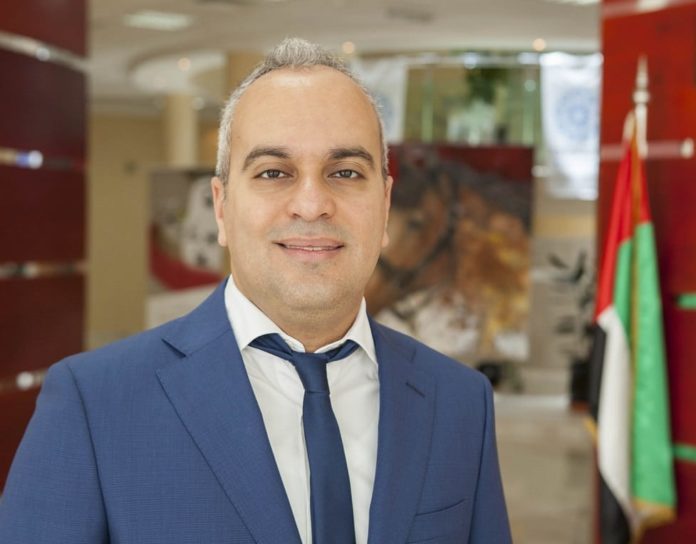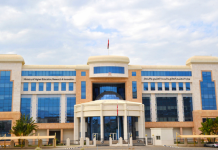Business Live Middle East talks to Dr Rami El Khatib, Associate Professor, Dean of Student Affairs, and Acting Head of the Department of Environmental Health Sciences at Canadian University Dubai about the current trends in education and what the future of education in the Middle East looks like
In recent years, which countries have been the most favoured destinations among students in the GCC?
From our experience at Canadian University Dubai, the UAE has been and remains a favoured destination for higher education in the region. The country offers access to a wide range of high-quality international curricula set in a secure, diverse and open society, with excellent employment opportunities for graduates looking to begin their career or settle in the UAE. As a hub for global education institutions, students here have unique transnational learning opportunities that they may not be able to experience elsewhere, such as the option to transfer from Canadian University Dubai to graduate from one of our Canadian partner institutions, or to earn a dual degree from Dubai and Canada in certain programs.
Do students now prefer to pursue higher education in their home countries/neighboring GCC countries?
In our experience at Canadian University Dubai, the student population originating from overseas has continued to develop. In particular, we have seen a growing diversification in the home geographies and territories of students applying to the University in recent years. This reflects the growing appeal of the transnational learning opportunities we offer and adds another dimension to the unique campus experience that prepares our students for work in a globalised context.
Why are we seeing this shift?
The country’s increasing prominence on the global stage and its growing reputation as a hub for international higher education have fueled greater awareness of the potential that exist for students and graduates in the UAE. As well as the immediate learning and lifestyle opportunities, a growing number of students recognise the long-term prospects presented by an international education, for example in securing employment and residency in Canada with a degree qualification based on the Canadian curriculum.
What are the most popular programmes among undergraduates?
Reflecting the UAE’s traditional industry landscape, programmes in mainstream business disciplines, engineering & technology, media & communications, and architecture & design all remain popular among undergraduate students at Canadian University Dubai. We are also witnessing growing popularity in new disciplines that reflect the evolution of the UAE economy, such as the BBA programmes in Events and Tourism Management, Sport Management, and Luxury Marketing. The programmes we have developed in response to emerging societal needs, in fields such as sociology, applied psychology, and environmental health sciences, are also attracting more students, with the flourishing employment opportunities in these growing professions.
With online courses becoming popular and millennials opting to stay back in the workforce, have the number of postgraduate students declined?
In our experience at Canadian University Dubai, the demand for graduate studies is as strong as ever. In this region, in particular, a graduate qualification remains an important benchmark in an employee’s career development and progression into leadership roles.
What is your opinion, is the biggest challenge faced by students in the present time? What can be done to address this?
Higher education represents a significant and long-term investment in a student’s future career and one of the biggest challenges they face is making the right decision about where to pursue their studies to ensure that they get the best return on their investment. To address this, students need to carefully consider their career aspirations and what their future employer will be expecting from them. The reality is that, in this dynamic business environment, subject material expertise is just one factor in employability; employers are increasingly looking for work-ready graduates with core skills around communication, teamwork, critical thinking, professional judgement, negotiation, leadership and emotional intelligence. As such, students need an education that is not just about the acquisition of knowledge, but also the development of these critical employability skills. At Canadian University Dubai, we tackle this by embedding workplace skills into each program as graduate outcomes, so that students develop and demonstrate these competencies as part of their degree through a wide range of immersive and practical learning experiences, which have their foundations in industry interaction. In this way, students are prepared to enter the workforce and see an immediate return on their investment.
With open-source courses now available online, how relevant is Executive Education?
In our experience at Canadian University Dubai, executive education remains relevant, particularly for professionals who want to fast-track into management positions or for those looking to take on the challenges of leadership in their organisation.
Is an MBA / Business degree still the top choice for Executives?
At Canadian University Dubai we established the unique Master in Information Technology Management and Governance programme in response to the growing demand for executive education that combines the principles of business with the demands and opportunities presented by modern technology. While this graduate qualification has grown in popularity, the University’s longstanding MBA programme continues to attract a broad student base among professionals from a range of sectors and disciplines, because it remains relevant to anyone in any industry looking to climb the career ladder.
With companies working on paper-thin margins, are companies still financing executive education for employees?
Yes, we have longstanding partnerships with a wide range of public and private sector organisations that continue to sponsor employees to complete their studies at Canadian University Dubai.
What alternatives are there for mid-career executives in this regard?
Self-sponsorship remains the route for many executive learners, with the return on investment of graduate management education being widely acknowledged. The Graduate Management Admission’s Council Alumni Perspectives Survey of 2018 reported that 94% of alumni found their degree to be personally rewarding, 89% said it was professionally rewarding, and 73% said it was financially rewarding, regardless of employment sector.
Are mid-career executives dropping out of the workforce to pursue full-time executive education?
Our experience at Canadian University Dubai is that students pursue part-time executive education alongside their employment. Our flexible study options allow them to continue working, with the added benefit of applying what they learn on the programme to their own professional context.
Do students in the GCC prefer online education and e-learning over the traditional educational system?
In our experience at Canadian University Dubai many of the critical employability skills that graduates need are developed through practice-based, interactive learning methods, which require the human interface. At undergraduate level, peer interaction is a fundamental feature of the university experience and students prefer to engage in person, developing their social and communication skills, alongside their academic competencies.
Will classrooms become obsolete in the future?
With advancing technologies and new learning methodologies, there are many lessons that can be effectively simulated online. However, there is no substitute for learning that is born out of face-to-face interaction and teamwork; this remains an essential aspect of the undergraduate experience, which would be lost if the classroom concept became obsolete. At graduate level, the convergence of senior executive level professionals from business and government sectors creates an outstanding educational opportunity through peer exchange. This not only adds to the learning experience but helps students to create and sustain valuable high-level professional networks, making the classroom an important dimension of the executive education experience.






